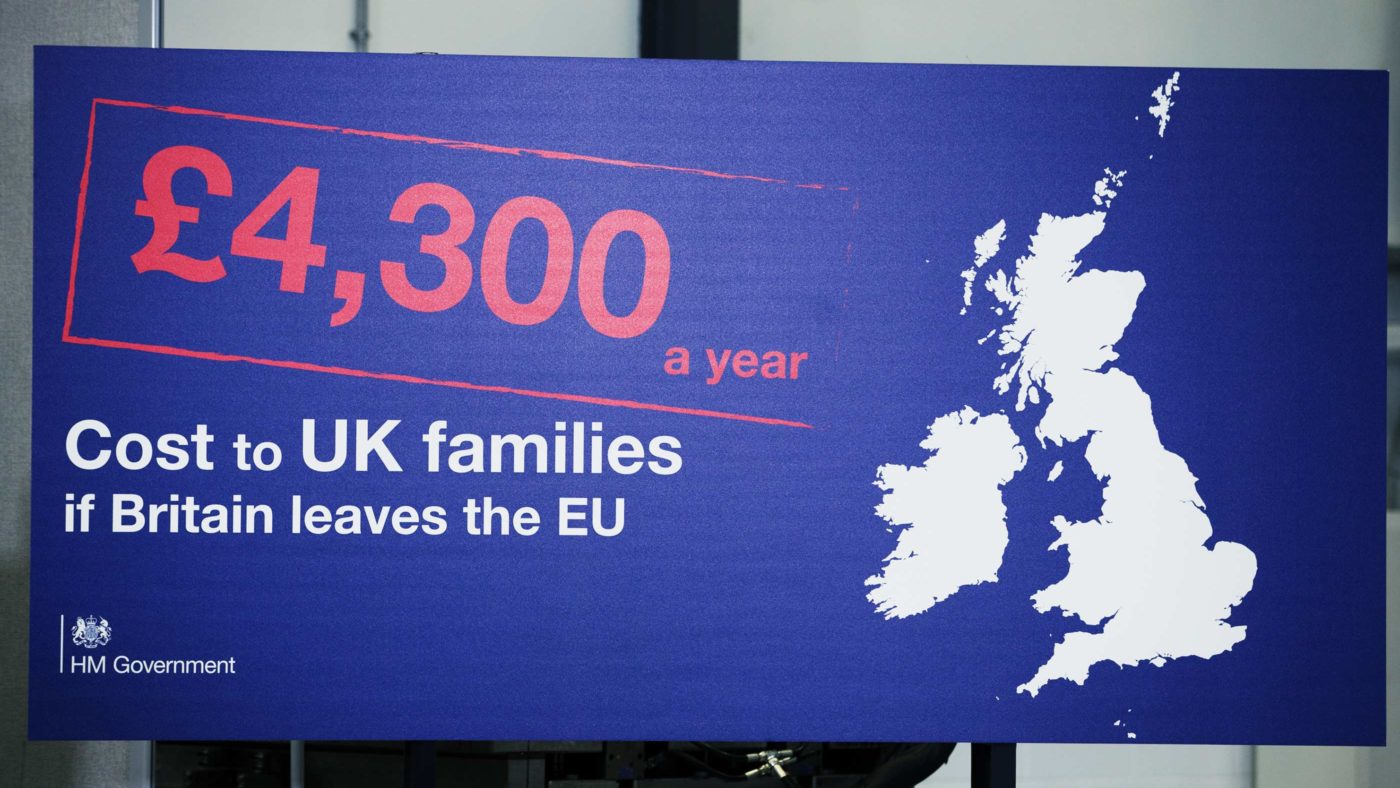There is an old saying that some people use statistics in the same way as a drunk uses a lamppost – for support rather than illumination. I sometimes think that applies to economic projections too.
A good example is how critics of the Government have deployed the work of the Office for Budget Responsibility (OBR) on the long-term impact of Brexit.
The OBR’s November 2020 Economic and Fiscal Outlook was, in its own words, “conditioned on the broad-brush assumption that the additional trade barriers associated with leaving the EU would reduce the long-run productivity of the UK by around 4%”.
In the hands of the Labour Party, exclusively reported by HuffPost, this has become “Brexit could cost every UK household £3,600 each, new analysis suggests”.
I know this sort of thing shouldn’t wind me up, but it still does. For a start, this “new analysis” amounts to no more than badgering someone at the House of Commons Library to take a guess at what 4% of GDP might be worth in pounds, and then dividing it by an estimate of the number of households in the UK. If this is “new analysis”, we’re setting a very low bar.
More importantly, this is giving far too much weight to the OBR numbers, which are based on little more than a literature review of what other economists have said about one potential long-term impact of Brexit.
It would be particularly disingenuous to describe this as the view of the Treasury, or something personally endorsed by Rishi Sunak. The whole point of the OBR is that it is independent. But this hasn’t stopped the usual suspects from claiming that “a Vote Leave prime minister and Chancellor have accepted that so-called project fear was right all along”.
Admittedly, there is a broad consensus that anything that reduces trade with the EU and investment into the UK will be bad for productivity and hence for long-term economic growth. Nonetheless, that still leaves plenty of room for reasonable disagreement.
First, the ‘broad-brush assumption’ of a 4% hit is based in turn on assumptions about the costs of non-tariff barriers, the sensitivity of UK-EU trade to an increase in these costs, and the magnitude of the knock-on effects on UK productivity. All these assumptions are debatable.
The results are then extrapolated over a period as long as 15 years, when frankly almost anything could happen. This ignores, for example, the likelihood that technological progress will reduce the costs of non-tariff barriers over time.
What’s more, Brexit is not just about UK-EU trade. It is also about the gains from lowering trade barriers with the rest of the world and better regulation at home, which, in my view, are usually under-estimated. The faster rollout of the vaccines in the UK is a timely example of the advantages of breaking free from the EU’s orbit and, quite apart from the boost to the nation’s health, could easily be worth several percentage points on GDP.
To be fair, the OBR’s forecasts are often misused by others too. It’s commonplace to hear spuriously accurate figures for the size of the fiscal hole that might be left by Covid. However, it is increasingly likely that borrowing in 2020-21 will substantially undershoot the OBR’s latest forecast of £355 billion, which was itself revised down from the November estimate of £394 billion.
The OBR’s forecast that the UK economy will grow by 4% this year also now looks far too low. For what it’s worth, I’m expecting the UK economy to grow by at least 7% this year, with GDP returning to pre-Covid levels as soon as the autumn. (And yes, that is ‘despite Brexit’.)
Much as it pains me to say so, economic forecasts can often be little more than informed guesswork. To be clear, I think the OBR does a great job, with limited resources, and its independence is invaluable. But I’m sure even the OBR would agree that its forecasts are not gospel truth – and they should not be treated as such.
Click here to subscribe to our daily briefing – the best pieces from CapX and across the web.
CapX depends on the generosity of its readers. If you value what we do, please consider making a donation.


